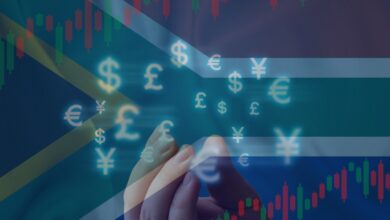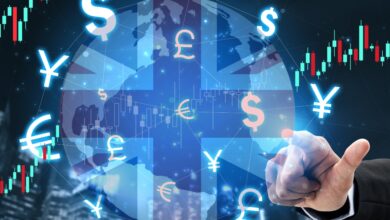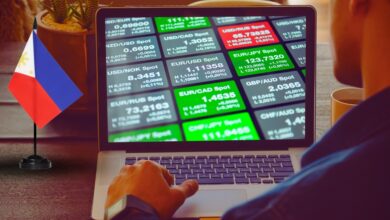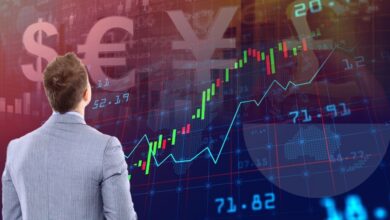Forex trading in New Zealand: a smart investment option?
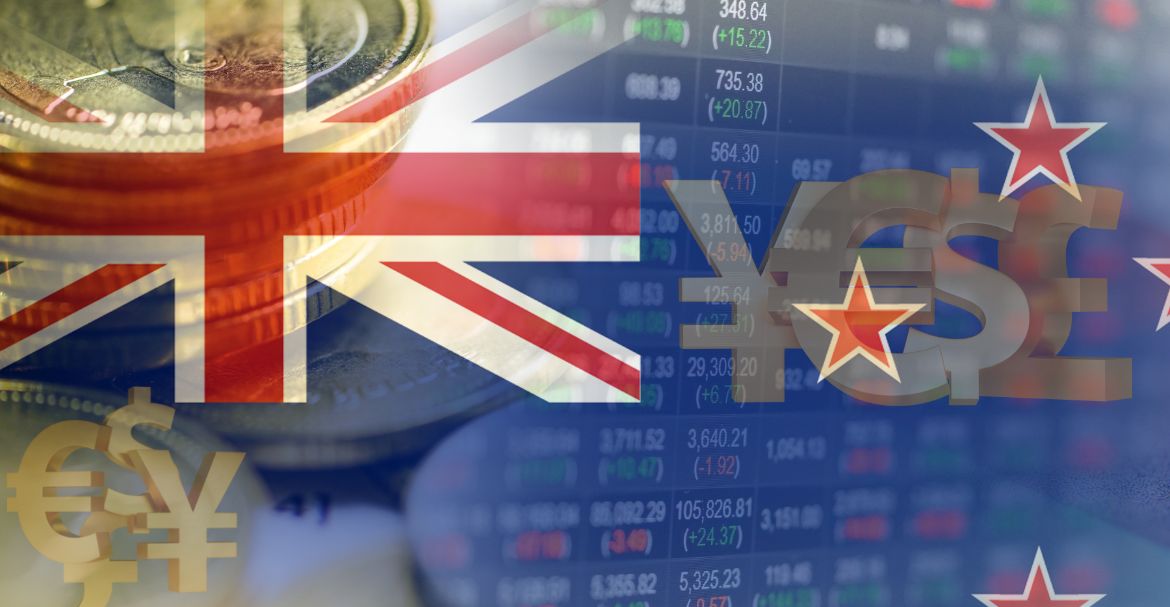
The Forex market, also known as the FX market, is the largest traded financial market in the world. Forex term is used as the short form of foreign exchange. Forex trading means the process of trading one currency in exchange for another. In this process, the traders get to make a profit from the differences between the prices of different currencies. The forex market remains operational 24 hours a day and five days a week. World’s largest banks, investment firms, businesses, hedge funds, and individual traders are the leading players in the world of the forex market.
Forex trading is prevalent among investors and traders in New Zealand. Owing to the massive number of active forex traders in New Zealand, the government has established a regulatory authority. In order to start trading forex in the country, the traders must register themselves with the Financial Markets Authority, also known as FMA. It is the regulatory organization in New Zealand that makes rules and regulations for the forex market in the country.
Forex trading is entirely legal in New Zealand, and as its economy relies heavily on the exports of agricultural and commodities, it offers a fruitful backdrop for forex trading. FMA has created a safe market for forex traders in the country by ensuring the transparency of forex trading brokers. Forex traders in New Zealand can trade multiple financial instruments such as shares, soft & hard commodities, and currency pairs. Thus, trading in the forex market is highly profitable for upcoming traders in the country.
Forex Trading Basics
Forex trading, also known as FX trading, is the process of predicting the price of a currency in comparison to another in order to make a profit. In the forex market, the currencies are traded in pairs, so in order to execute a successful trade, the investors have to speculate on whether the price of one currency will fluctuate in value against the other in the pair. As already mentioned, there are multiple players in the forex market, and each and every one of them plays a significant role in one way or another. Since the advent of internet services, the process of executing trades in FX markets has become smoother. The players of the forex world now have easier access to necessary data, which has made trading more profitable than before.
On the basis of capitalization and sophistication, there are six major players in the forex market, namely trading platforms, commercial and investment banks, hedge banks, retail brokers, central banks, and businesses. In the FX market, some major currency combinations are highly popular among traders. Though different people may have other lists, most of them will have the following “major fours” in their lists.
- EUR/USD: The pair includes Euro and US dollars and is known as Fiber in the forex market.
- GBP/USD: The pair includes British pounds and US dollars and is popularly known as Cable in the forex industry.
- USD/JPY: The pair includes the US Dollar and Japanese Yen and is known as Gopher in the FX world.
- USD/CHF: This central currency pair includes the US Dollar and Swiss franc. It is popularly known as Swissie in the foreign exchange market.
The forex market is the largest financial and the most volatile market in the world. Some of the main factors that influence the forex market are mentioned ahead.
- Interest Rates
- Economic Condition
- Trade Weighted Index
- Significant World Events
- Government Debt
Benefits of Forex Trading in New Zealand
Owing to the stable financial condition in New Zealand, forex trading has become highly beneficial in the country. One has the liberty to take up forex trading as a permanent career. Some of the main benefits of forex trading in New Zealand are mentioned ahead.
- High Liquidity and Low Transaction Costs
The forex trading market is the most liquid market in the world, offering high liquidity to traders based in New Zealand. It means a large volume of trading takes place in the New Zealand FX market as a large number of traders buy and sell currencies at a given time. High liquidity means the transactions complete quickly, which reduces the spreads, thereby leading to low transaction costs.
- The Ability to Go Long or Short
One of the major benefits of forex trading in New Zealand is that it offers a trader the ability to go long or short. In other markets, one can only go short by using CFDs; however, short selling is an essential characteristic of forex trading because a trader always has to sell one currency in order to buy another. The price of a currency pair is decided by the amount of base currency purchased against the quote currency. The profit and loss in the forex market are decided on your prediction, which means if executed rightly; one can make a profit no matter which way the market moves. Traders should also consider tools like forex signals that help in the prediction of price movements.
- Trading Flexibility and Accessibility
Another significant benefit of trading in the forex market is the flexibility and accessibility one gets as the FX market remains operational 24 hours a day, five days a week. The reason behind such timing flexibility is that due to the absence of a centralized institution, the forex trades are settled between the concerned stakeholders directly. As already mentioned, forex is a global market, which means one can take advantage by trading in different sessions.
- Potential for High Returns
In the forex market, billions of dollars are transacted every day, which creates a lot of fluctuations in the price movement of various currencies, making them highly volatile. However, this extreme volatility also provides New Zealand traders opportunities to reap the benefit by predicting the price movement of a particular currency based on in-depth research. It is advisable that traders do their homework before playing with the volatility curve of a currency lest they may fall into their own trap and face unwanted financial losses.
Risks of Forex Trading in New Zealand
Though forex trading is highly beneficial, it has its own demerits. Due to the massive volume of trade and extreme volatility of the FX market, traders may face tremendous losses. Moreover, a lack of knowledge about the basics of the forex market and the presence of nefarious elements in the finance world also give major setbacks to traders. Some of the common risks faced by forex traders in New Zealand are mentioned ahead.
- Volatility and Unpredictability
The FX market, being the largest market in the world, is highly vulnerable to numerous factors, such as government decisions, trading cycles, and some major news. This volatility and unpredictability play mind games with the traders, which sometimes lead to financial mishappenings. Thus, in order to avoid such instances, it is advisable that traders keep a cool head while placing trades in the FX market.
- Leverage and Margin Risks
Small margin deposits and trade collaterals are generally required in the forex market. It is mandatory because, based on your deposits, the forex brokers offer you the leverage to execute the trade. Along the same line, a minute change in the contract’s price may cause one to suffer serious losses that may go over the amount invested in the trade. In order to avoid leverage and margin risks, traders must not use leverage aggressively.
- Regulatory Risks
While trading in the FX market, the traders must know that the majority of forex trades are executed by the banks that actually use the market to control the fluctuation of a currency. Moreover, the forex currency prices are determined by the government, which means the traders also have to face a lot of restrictions or penalties while trading in the FX market. These limits/restrictions prevent traders from taking full advantage of the liquidity of the forex market at a given time.
- Risks of Fraud and Scam
As FX is the largest financial industry in the world, traders face a lot of harmful elements that run frauds and scams. The most common way of investing in the forex market is via forex brokers who sometimes scam traders of their hard-earned money. Thus, it is advisable that traders research thoroughly the forex broker they are going to use for trading.
Getting Started with Forex Trading in New Zealand
Traders based in New Zealand can quickly start forex trading by following some simple steps. In this forex trading guide, we have listed the crucial steps one must follow to start their trading journey smoothly.
- Choosing a Forex Broker
The foremost that one must do to start forex trading is to research and select the best forex broker in New Zealand. Some of the few things that new traders must keep in mind while searching for the best forex broker are security, transactional costs, smooth deposits and withdrawals, user interface, and customer service options.
- Open a Forex Trading Account
Once you have selected the best forex broker as per your requirements, the next thing to do is to open a forex trading account with the broker. In order to open a trading account, the traders will be required to submit their ID proof to complete the KYC process. After opening a forex trading account, one must add funds to their trading account. The majority of forex brokers accept a wide range of payment options such as bank wire transfers, credit & debit cards, or e-wallets such as Skrill, Neteller, or PayPal.
- Setting Up a Trading Plan and Risk Management Strategy
At the start of their trading journey, the traders tend to get excited, which sometimes causes them heavy financial losses. In order to avoid such a situation, it is advisable that before jumping wildly into forex trading, the new traders must set up a trading plan and a well-researched risk management strategy in case things go south.
Conclusion
Finally, we can say that forex trading is a highly profitable venture for traders and investors based in New Zealand. The Financial Market Authority in New Zealand has created a safe and secure forex trading market for investors so that they won’t have to face any mishappenings. There are numerous benefits of forex trading, such as high liquidity, high returns, and trading flexibility. The process of starting FX trading in New Zealand is very simple; one just has to choose the best forex broker, sign up for it, make a deposit, and start trading.
Although there are numerous benefits of FX trading, one must also not ignore the risks such as scams, high volatility, leverage risks, and regulatory risks. It is advisable that before starting their FX trading journey, the investors must research thoroughly about the forex, create a trading plan, and execute a risk management strategy to minimize the losses and make huge profits!
